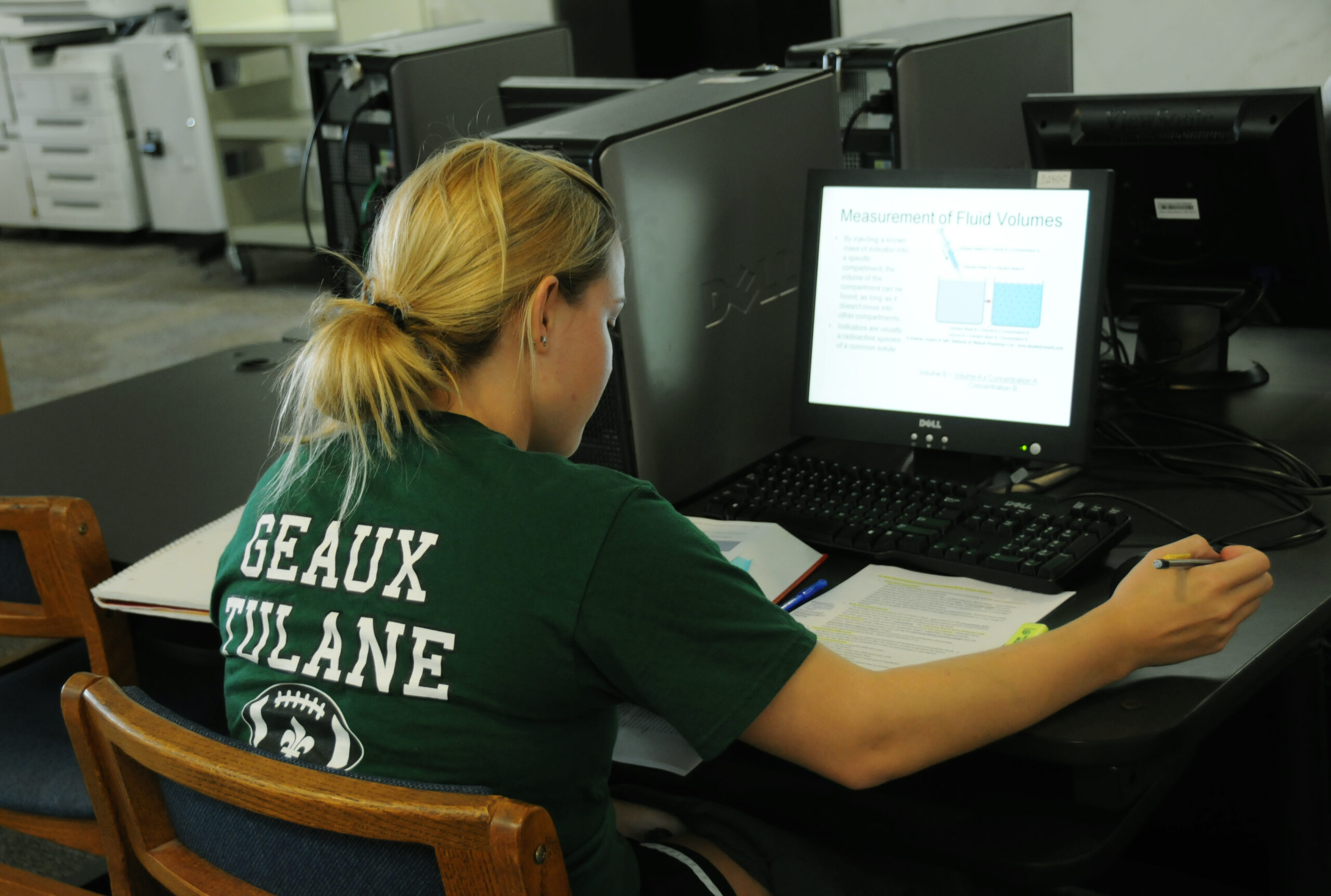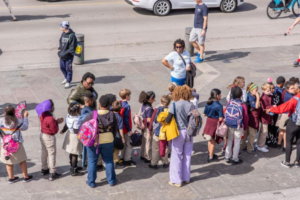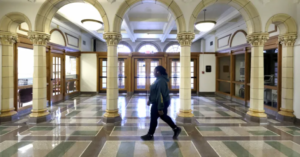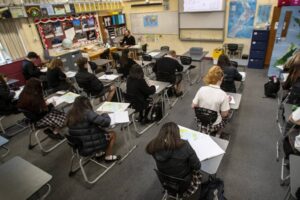Victoria’s Year 12 students are learning remotely. But they won’t necessarily fall behind
4 min read
In early July, Victorian Premier Daniel Andrews announced government school students in prep to Year 10 — in Metropolitan Melbourne and the Mitchell Shire —would learn from home for term three. Students in Years 11 and 12, as well as those in Year 10 attending VCE or VCAL classes, and students with special needs, would learn face to face.
The exemption for students doing VCE subjects to go class was made to ensure the least amount of disruption to the final years of schooling.
From today, however, after the announcement of harsher, Stage 4 restrictions for metropolitan Melbourne and Stage 3 restrictions for the rest of Victoria, students in Years 11 and 12 will learn remotely with every other student in the state.
Read more: What actually is an ATAR? First of all it’s a rank, not a score
So, will remote learning at the end of schooling mean Victorian students will fall behind the rest of the country?
Setting up Year 12s for further learning
Year 12 marks the end of school and the shift to work and further education for most students.
The Year 12 journey is sprinkled with milestones and rites of passage: the school formal, leadership opportunities, gaining independence with a new driver’s license and for many, turning 18 and being regarded as an adult.
In classrooms, learning is highly regulated by the teacher. Whereas in vocational education and training, and university, learning is rapidly moving to a more online, independent, mode. Even before the pandemic, post-school education required students to be more self-directed learners than they were at school.
This year’s Year 12 students won’t experience many common milestones and rites of passage. But many will have gained significant experiences of learning online, and independently — beyond what they ordinarily would have — which will set them up for similar learning beyond school.
Read more: Year 12 can be stressful, but setting strong and healthy goals can help you thrive
The chance to develop online learning capabilities while being supported by their school teachers will give Year 12s learning remotely a real advantage.
Year 12s like learning independently
We conducted a survey of students who experienced remote schooling during March and April this year at an independent school in Queensland. Overall 1,032 students completed the survey, across prep to Year 12.
Just over 41% of students, overall, said they found learning at home stressful. But this was generally not the case for students in Year 12. Year 12 students were keen for the flexibility to learn at their own pace, and being free to determine the order of study each week, rather than follow a timetable set by the school.
Year 12 students said they preferred to concentrate on one subject a day and to work intensely.
Generally Year 12 students said they disliked live video sessions and found them disruptive to their study flow. While 75% of Grade 7 students valued form class or home room live sessions, only 16% of Grade 12 students did. They preferred to spend their time focusing on given subject materials.
Is online learning inferior to face to face?
Studies have suggested online learning is likely to be less effective than classroom education over the longer-term. But there is also evidence to suggest the impact may be negligible in the short term.
Other studies suggest there is no significant difference in learning outcomes between students in distance education (when students live too far from the school to attend in person) and face-to-face learning.
But there are significant variations in outcomes within each approach. This means a student’s ability to learn online, the design of the online learning environment and even the amount of time needed for students to get familiar with learning online can affect their outcomes.
Read more: Studying for exams? Here’s how to make your memory work for you
Students have been conditioned for over 12 years to learn in classrooms from a teacher. This can make it difficult for them to become familiar with new ways of learning.
A major issue associated with online learning is a student’s ability to regulate themselves. This means being able to stay on task especially when a problem arises. Being unfamiliar with new ways of accessing and interpreting online environments and subject content, as well as working with peers online in communication spaces, presents new challenges for students.
However, the problem may again have to do with age. In our survey, mentioned above, 75% Year 12 students believed they were able to work through a problem productively online. This was higher than the other high-school year levels.
Tips for Year 12 students
There are many advantages to learning online. Students can work at their own pace, revise and review teacher made videos for examples, and engage with extensive notes and study guides to help with assessment and exams.
Students can also access their teachers in more varied ways and at different times of day. In other words, moving online for Year 12 students can provide a world of resources and access to teachers they have not experienced before.
Read more: So you’re going to school online – here are 6 ways to make the most of it
To make the most of their Year 12 experience, students should keep these simple tips in mind:
- organise your learning week. Set up your own timetable of tasks to complete. Include breaks and time to relax
- be an active learner. Make notes while listening to teacher made videos and written materials
- contact a friend if you have a problem, and work through the issue together
- use the communication tools available to tell your teachers and friends what you are thinking about
- participate in live sessions and forums as much as you can.
Correction: this article previously had an incorrect statement about ATAR calculation. This has now been removed.
Sarah Prestridge, Senior Lecturer, Griffith University and Donna Pendergast, Dean, School of Educational and Professional Studies, Griffith University
This article is republished from The Conversation under a Creative Commons license. Read the original article.







